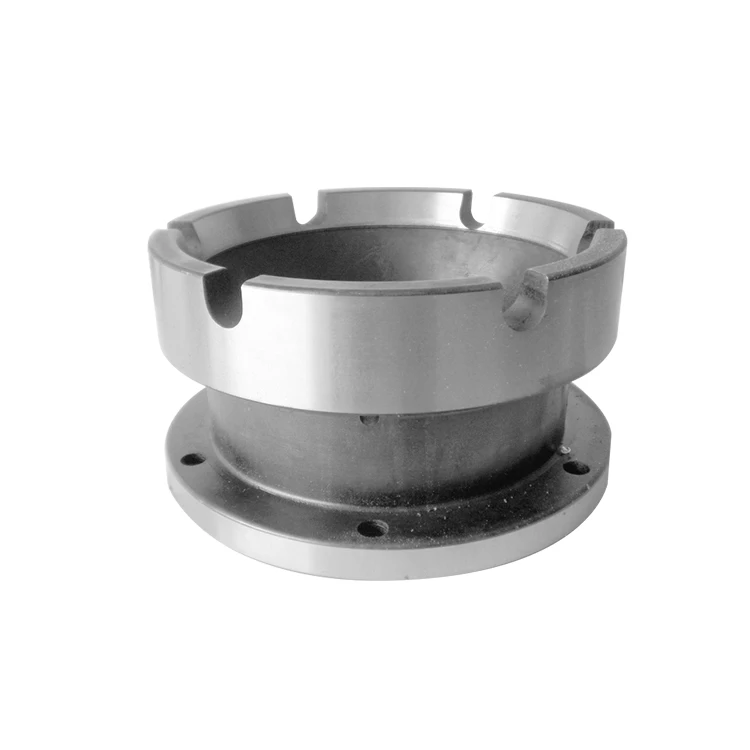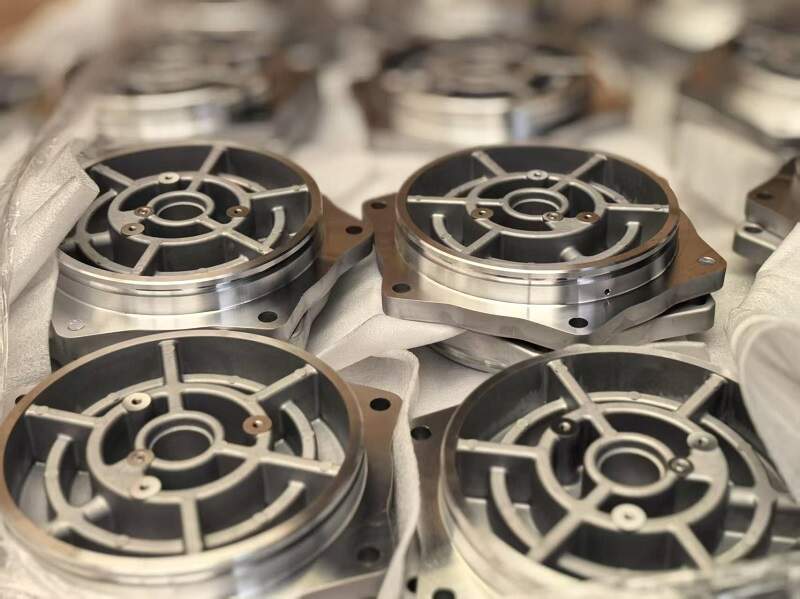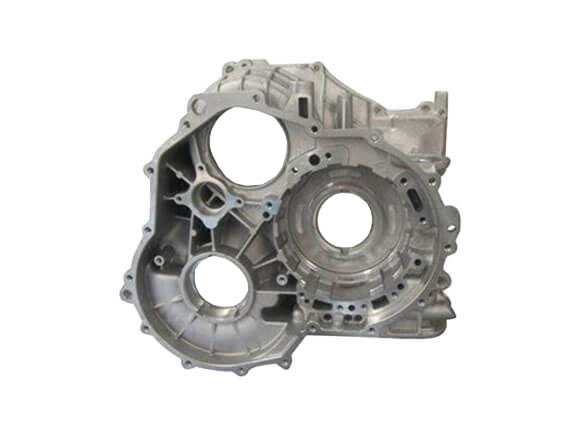The impact of aluminum casting in creating lightweight metal parts
The Role of Light Weight Aluminum Foundries beforehand Lightweight Manufacturing Solutions
Light weight aluminum foundries considerably add to the development of light-weight production remedies. Their ingenious casting technologies generate high-strength, light-weight components vital for markets such as automotive and aerospace. This advancement not just boosts product performance but also advertises sustainability through using recycled materials. As these foundries adapt to arising techniques and innovations, they lead the method for future advancements in manufacturing performance and environmental responsibility. What lies in advance in this transformative trip?
The Advantages of Lightweight Materials in Manufacturing
As markets significantly look for effectiveness and sustainability, the adoption of light-weight materials in production has actually become a vital strategy - aluminum casting. These products, specifically aluminum and compounds, provide various advantages that enhance manufacturing procedures and item performance. Mostly, their minimized weight adds to reduce energy consumption during transport and operation, resulting in considerable expense financial savings
In addition, light-weight materials help with the design of more complex geometries, permitting higher technology in item growth. This adaptability often results in enhanced functionality and performance, catering to the evolving needs of modern customers.
Furthermore, the usage of light-weight materials can improve the longevity of products as a result of their resistance to rust and tiredness. This durability not only reduces upkeep expenses but likewise supports sustainability initiatives, as longer-lasting products add to much less waste. To summarize, the benefits of light-weight materials are crucial in driving performance, innovation, and ecological obligation in manufacturing.
Developments in Aluminum Casting Technologies
Recent developments in aluminum spreading technologies are transforming the production landscape, particularly in the manufacturing of lightweight components. Innovations such as high-pressure die casting and vacuum cleaner pass away casting have actually substantially boosted the precision and surface finish of light weight aluminum parts - Aluminum Casting Company. These techniques allow for the creation of complex geometries while lessening material waste and boosting mechanical buildings

In addition, the application of real-time tracking systems ensures quality assurance throughout the casting process, leading to even more consistent item outcomes. Jointly, these technologies not just boost the performance of aluminum components yet likewise support the industry's change in the direction of even more sustainable production methods.
Applications of Light Weight Aluminum Components in Different Industries
While light weight aluminum elements have long been used in various sectors, their adaptability and lightweight properties remain to drive innovative applications throughout industries such as automotive, aerospace, and building. In the auto industry, aluminum is progressively made use of for engine blocks, wheels, and body panels, boosting gas efficiency and efficiency. Aerospace suppliers take advantage of aluminum for airplane frameworks and components, maximizing its strength-to-weight ratio to boost fuel economic situation and haul capacity.
In the building and construction industry, light weight aluminum is favored for window frameworks, roof, and structural aspects, providing toughness and resistance to deterioration while reducing total building weight. Furthermore, the electric and electronics markets gain from aluminum's conductivity and lightweight nature, utilizing it in circuitry, units, and warm sinks. These diverse applications highlight the critical duty of light weight aluminum elements, which not only satisfy industry demands yet likewise contribute to developments in product layout and performance across multiple fields.
Sustainability and Power Performance in Light Weight Aluminum Foundries
The light weight aluminum foundry sector plays an important duty in promoting sustainability and energy efficiency, specifically as demand for lightweight parts continues to grow across different markets. Foundries are significantly embracing eco friendly techniques, such as making use of recycled aluminum, which greatly decreases power intake and greenhouse gas emissions contrasted to primary light weight aluminum production.
Improvements in casting technologies enhance power effectiveness by maximizing the melting processes and lowering waste. Methods like die casting and financial investment spreading enable for specific product use, minimizing excess and scrap.
In addition, lots of foundries are purchasing renewable resource resources to power operations, additionally reducing their carbon footprint. Implementing energy monitoring systems enables factories to boost and check energy use, guaranteeing they run at peak efficiency.

Future Patterns in Lightweight Production Solutions
How will arising technologies shape the future of lightweight manufacturing remedies? Developments such as innovative materials, automation, and additive production are readied to redefine production procedures. The combination of wise production modern technologies, including the Internet of Things (IoT) and expert system (AI), will allow real-time tracking and optimization, enhancing effectiveness and reducing waste.

As sustainability remains to be a critical issue, lightweight solutions will increasingly concentrate on reusing and recycling materials, lining up with round economic situation principles. This advancement in light-weight manufacturing will certainly not only boost item efficiency but likewise add to ecological goals, making certain that the sector stays competitive in a quickly changing market landscape.
Regularly Asked Inquiries
How Do Aluminum Foundries Make Certain Quality Control in Production?
Aluminum foundries guarantee quality assurance in have a peek at this website manufacturing with strenuous screening, standardized treatments, and continuous tracking - Precision aluminum casting. They carry out sophisticated innovations and proficient workers to keep uniformity, reduce issues, and meet market requirements throughout the manufacturing process
What Are the Main Tests Encountered by Aluminum Foundries?
Light weight aluminum foundries face difficulties such as varying basic material prices, keeping manufacturing performance, making certain regular quality, adapting to technical improvements, and conference ecological regulations, every one of which impact their overall functional efficiency and competition in the market.
Just How Does Aluminum Recycling Effect Factory Procedures?
Aluminum recycling considerably enhances shop operations by minimizing raw material expenses, lessening power intake, and lowering environmental effect. This lasting technique makes it possible for shops to improve efficiency while fulfilling increasing need for light-weight, high-performance aluminum products.
What Skills Are Needed for Employees in Light Weight Aluminum Foundries?
Employees in aluminum shops need skills in metallurgy, machining, quality assurance, and safety and security methods. Proficiency in running equipment, understanding alloy homes, and problem-solving are also vital for reliable manufacturing and keeping high safety and security criteria.
Exactly How Do Light Weight Aluminum Foundries Manage Waste Management?
Aluminum foundries take care of waste via recycling scrap steel, using effective waste segregation strategies, and adhering to try this ecological policies. They implement sustainable methods to lessen land fill contributions, guaranteeing that dangerous materials are gotten rid of sensibly.
Light weight aluminum shops greatly add to the advancement of lightweight manufacturing remedies. Current improvements in aluminum spreading technologies are changing the manufacturing landscape, especially in the production of light-weight elements. While aluminum elements have long been made use of in numerous markets, their adaptability and lightweight residential properties proceed to drive innovative applications across markets such as vehicle, aerospace, and building and construction. Additionally, the electric and electronic i thought about this devices industries profit from light weight aluminum's conductivity and lightweight nature, using it in circuitry, units, and heat sinks. The light weight aluminum shop industry plays an essential function in promoting sustainability and power efficiency, specifically as demand for lightweight parts continues to expand throughout different industries.